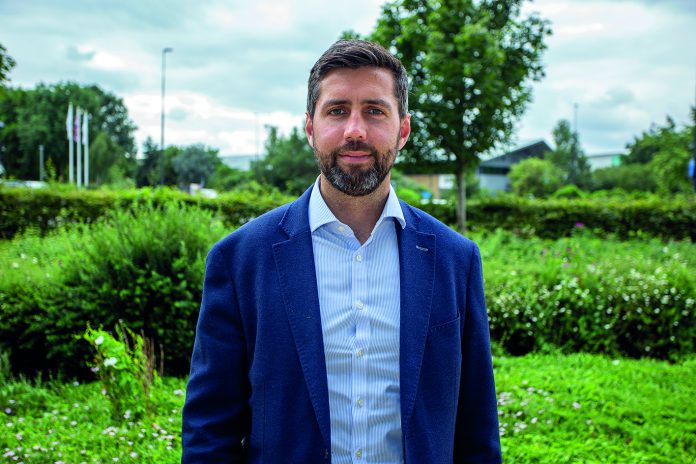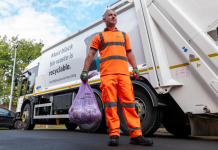South Gloucestershire’s Full Council meeting (9 December) received a report highlighting the significant progress made in tackling the Climate Emergency declared last year and setting out the future work planned for the coming year to improve the Council’s environmental position and performance.
The report highlighted a number of significant steps that have been taken in this foundation year of our work. Notable projects delivered as part of year one include:
• New schools at Frenchay, Elm Park and Lyde Green have been designed to higher environmental standards
• The Cribbs Patchway Metrobus extension is well into the construction phase
• New electric vehicle charging hub at Bristol and Bath Science Park with 10 chargers
• Electric vehicle charging infrastructure report produced to assess area wide needs
• Extra support for residents to access Government Green Homes Grant
• Trials of nature friendly approaches to managing verges on the highway
• New Local Plan out for public consultation includes strong Climate Emergency policies
• Regional Renewable Energy Study underway to identify renewable energy opportunities across the area.
We recognise that, as important as they are, progress will require not only local or even district-wide stand-alone projects, but through embedding this priority throughout the council’s strategic work and through engagement and collaboration with the wider community.
The Council is delighted to announce that members of our Local Strategic Partnership have signed a joint statement of intent reaffirming our commitment to joint working across the area to tackle the Climate Emergency and the Nature Crisis. Signatories include Airbus, Avon Fire and Rescue Service, Bristol, North Somerset and South Gloucestershire Clinical Commissioning Group, The University of the West of England, CVS South Gloucestershire, Southern Brooks Partnership and The Care Forum. For more information please visit: South Gloucestershire Council (ourareaourfuture.org.uk).
This year South Gloucestershire has worked with the West of England Combined Authority as they have developed their Climate Emergency Action Plan demonstrating our regional strength in joint working to deliver real change, recognising how regional investment and delivery shapes Climate Emergency outcomes.
Nationally South Gloucestershire has also taken a leadership role by signing the revised UK100 declaration and through membership of the Countryside Climate Network and the UK 100 Cities Network to inform the national policy direction.
Leader of the Council, Toby Savage, said: “Having declared a Climate Emergency a year ago, we have been pleased to embed it’s principles into our new Council Plan which guides the work of the whole organisation.
“Looking ahead to next year and beyond, the council’s work to respond to the Climate Emergency will expand outwards across the area, including engagement through our Local Strategic Partnership and through different sectors of our local economy and our community.”
The UK government has set out its 10-point plan for a green industrial revolution and the Council will respond to the opportunities provided within that plan.
Next year the UK hosts the Conference of the Parties (COP26) in Glasgow in November therefore the council recognises that next year will be a pivotal year for action, locally, nationally, and globally and we intend to reflect that in the work that we undertake here in South Gloucestershire.
Councillor Savage added: “This year the global pandemic has brought radical changes to the ways we work and live and whilst these have had and continue to have a major impact on our communities, we understand that the urgency of the climate challenge has not dimmed. We see that some of these changes have opened the door to different priorities and practices with increases in home working, active travel and the desire for healthy natural spaces for all.
“In Year Two, we will embed Climate Emergency principles into our work on Covid recovery. We will also increasingly focus on the needs of council services and operations and enabling the wider community to adapt to the local impacts of a changing climate.
“We also know full well that this is both a climate emergency and a nature crisis and that these issues must be dealt with simultaneously, recognising that the solutions to both these issues cannot be dealt with in isolation and that the solutions are more impactful when considered together. Therefore, the council will continue to respond to the nature crisis through our work on Climate Emergency which will include initiatives around biodiversity, habitat and nature recovery.
“We want an equitable transition that will benefit all our residents and businesses, bringing improvements in public health and community cohesion, new jobs, restoration of the natural environment and improvements in the life chances of our children.
“We are under no illusions that there is still a mountain to climb to achieve our goals and we look forward to working with our whole community to achieve the benefits for all of and the generations to come.”
• The Climate Emergency Update Report and Year 2 action plan are available online here: Agenda for Council on Wednesday, 9th December, 2020, 7.00 pm – South Gloucestershire Council (southglos.gov.uk) at Item 10.
• Council Emissions: Greenhouse gas (GHG) emissions in 2019/20 have decreased by 18% since the previous year and by 69% since the base year (2009/10).
• Area wide emissions: In 2018 (the most recently available data), carbon dioxide emissions totalled 1177.6 kt which is 43% lower than in 1990 (our baseline year). To respond to the Climate Emergency declaration and for South Gloucestershire to reach net zero by 2030 as an area we need to reduce our carbon emissions by 130.84 kt per year.









